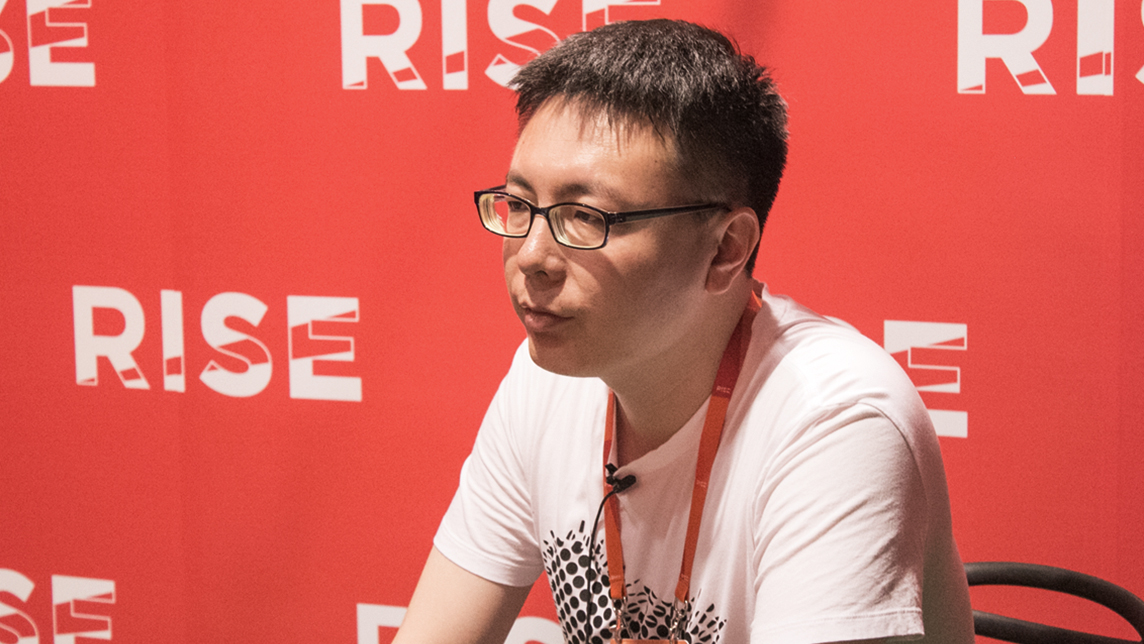A pioneer in big data analytics and enterprise digital infrastructure in China, Baifendian is ready to expand abroad.
Baifendian’s Vice-President (Technology) Liu Yijing said: “I’m here [in Hong Kong] to talk to some overseas companies that have a strong local presence, to see if we can go abroad via partnerships.”
Venturing into a foreign market alone could have its “challenges”, such as resource and cultural limitations, he added. Liu, who’s also Baifendian’s chief software architect, said in an interview with CompassList during the Rise conference in 2017.
Baifendian sells big data technology and SaaS in analytics, management, infrastructure, and marketing recommendations. Its clients include Huawei, China Construction Bank, TCL Communication, and smaller businesses. Microsoft and HP are among its strategic partners.
Liu recalled: “[Referring to its partnership with Baifendian,] HP’s China head once said, ‘For the first time, HP is selling software made by the Chinese.’”
Founded in 2009 by its CEO Su Meng, an associate professor of Peking University’s Guanghua School of Management, the company raised 400 million RMB (US$62.8 million) in Series D financing from China Everbright Group last September. Its total funding to date is 668 million RMB (US$101.7 million). The company has yet to turn in a profit, although its revenue in 2014 quadrupled from 2013, reported CBNweekly.
China's big data pioneer
China’s big data industry was worth around 11.6 billion RMB (US$1.77 billion) in 2015, a figure the government forecasts growing more than 50% annually over the next five years. It expects China to become the world’s No. 1 big data center in 2020, with a 21% market share.
Back then in 2009, before big data was even a concept in the marketplace, Baifendian started out as a pioneer building recommendation engines for e-commerce sites.
Liu recalled: “E-commerce in China had just started growing and everyone was busy building their own e-commerce businesses and hoping to grab a share of the pie.
“We saw the opportunity to provide a solution to e-commerce end-users to filter the information and quickly find what they want, which is also the most basic application of big data.”
Liu was a fourth-year PhD student at Peking University at the time, looking for an internship. “I saw [Baifendian’s] hiring ad on the university’s BBS. It happened to be located very near the campus, so I thought I could rush back in 10 minutes should my PhD supervisor want to see me.”
The company was formed on July 1, 2009, with just an intern and one staff – Liu.
“I didn’t have any experience in creating a product or a pure internet software. So there were many sleepless nights spent on research and endless trials,” he said.
Software fundamentals unchanged
Within a month, Baifendian had come up with its first version of a recommendation engine, but almost at once, the team went back to the drawing board.
“We restructured the fundamentals of the software in August 2009. Even today, most of our products and services are still based on this structure.
“It was a tough journey, mainly because most of us didn’t have any industry experience… But as a result of the exploration work we went through, we familiarized ourselves with many advanced technologies, even by today’s standards. That has helped us to maintain our lead.”
Today, Baifendian serves more than 2,000 internet companies and offline businesses. It runs over 1,000 servers to process and store data, and build models. Its first client, Mbaobao, China’s largest e-retailer of fashion bags, remains one of its key accounts.
“As a DMP [data management platform], through the massive amounts of data that businesses have accumulated, we can penetrate more than 70% of China internet users’ data, whether it’s their reading or spending preferences,” said Liu.
Open culture
Despite the intensely competitive conditions it operates in, Baifendian’s culture remains – in Liu’s words – a “very open” one.
“We aren’t worried about others knowing our technology… In fact, we want more in the industry to understand what we’re doing.
“The user interface and product features can be easily copied, but what you can’t see – our algorithm, our ways of looking at data, our thought process when building up our software architecture – are very difficult to replicate.”
He also singled out the huge amounts of data Baifendian has gathered over its past seven years of operations, its consolidated knowledge and experience, and its strong client relationships. “These are the real barriers to entry,” he said.
But above all, Liu stressed, Baifendian’s 650-strong team has been instrumental to the company’s success.
“Over the years, we have built a team that shares a common belief – that we can build Baifendian to become the symbol of Chinese big data technology. We want to prove on the global stage that China can excel in this.”
The interview was conducted in Mandarin and translated.











